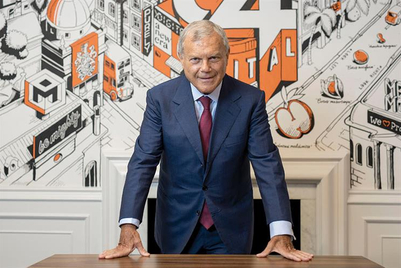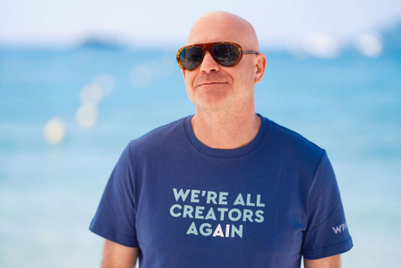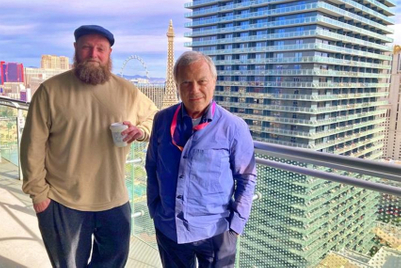"Traumatic and dramatic" is how Sir Martin Sorrell describes his year. When news broke on 3 April that the WPP board was investigating allegations against him of personal misconduct, which Sorrell vehemently denied, his future as chief executive of the world’s biggest advertising group looked doomed.
He was already short of allies: WPP had become unwieldy and missed revenue forecasts three times in 2017, while the share price had tumbled by a third from £19 to £11 in a year.
And so it came to pass that, 11 days later, Sorrell resigned just after 10pm on Saturday evening, before the investigation had concluded. "WPP will always be my baby," he told staff in an emotional farewell.
The resignation of the most powerful figure in global advertising made headlines around the world. It was a traumatic end to Sorrell’s 33-year reign at WPP, the company that he turned from a shell into a FTSE-100 giant through hundreds of acquisitions.
He knew he had lost his Midas touch, as WPP’s value had dropped from £24bn to £14bn during his final year in charge against a backdrop of clients demanding simpler ways of working, bringing some marketing services in-house and buying ads directly from Google and Facebook.
However, Sorrell’s departure was just the first chapter in an epic drama. It emerged there was no "non-compete" clause in his WPP contract, meaning he was able to set up a new company, S4 Capital, in May, just six weeks after leaving WPP. It stunned the ad industry and angered his old employer.
Sorrell announced he was putting £40m of his own money into S4 Capital and listing it on the London stock market through a reverse takeover of a shell company, Derriston Capital, just as he did when taking over Wire & Plastic Products in 1985. Sorrell was going "back to the future" as he had vowed to do when he said he was quitting in April.
Rumours about his personal conduct continued to cast a shadow as the Financial Times and The Wall Street Journal published lurid claims in June that WPP had investigated whether Sorrell had used company funds to pay a prostitute and that he had behaved in a bullying manner towards staff. He denied the allegations and moved at speed, beating WPP to the purchase of Dutch content production company MediaMonks for €300m (£266m) and merging it with S4 Capital in July.
Sorrell, who became executive chairman of S4 Capital, explained how he had been "listening" to clients, and the group would have one P&L and co-locate teams in client offices – a marked change from how he ran his old company.
"The merger represents the first move by S4 Capital to create a new-era, new-media solution, embracing data, content and technology, which meets client needs in an always-on environment," he said.
WPP’s lawyers claimed Sorrell had been talking to MediaMonks while in his old job, warning that he may have broken the terms of his employment, which could jeopardise up to £20m in share awards as part of his severance agreement. Sorrell shrugged off the threat. S4 Capital instantly had international scale because MediaMonks had 11 offices in 10 countries; shares began trading on 28 September.
"The best form of revenge would be building a significant and successful new-era, new-format, new-approach agency," Sorrell conceded when he spoke at Campaign’s Breakfast Briefing, "Back to the future: when Sorrell met MediaMonks", held in association with Results International in November.
The best form of revenge would be building a significant and successful new-era, new-format, new-approach agency
– Sir Martin Sorrell
Meanwhile, life at WPP was tough. The FTSE-100 group carried out a public search for a new chief executive at a time when it could ill afford months of limbo and it had an internal frontrunner, Mark Read, chief executive of Wunderman.
There was also anger at Sorrell’s behaviour. He had left a sprawling, debt-laden empire comprising dozens of agencies in need of major restructuring, and the lack of a non-compete clause attached to his exit contrasted with his ruthless enforcement of such agreements for other WPP executives.
Read and Andrew Scott, who were named joint chief operating officers during the interregnum, insisted WPP didn’t need to be broken up but they cut links with the Sorrell era by quitting the group’s Farm Street headquarters in Mayfair. Stephen Allan, global chief executive of MediaCom, described staff as feeling "liberated".
Roberto Quarta, chairman of WPP, confirmed Read as chief executive on 3 September and dismissed suggestions that the company had struggled to find external candidates willing to take on the job. Sorrell criticised the search as "a complete waste of time", saying that Read and Scott should have been joint CEOs.
Read promised "radical evolution", warning WPP had been too slow to adapt in recent years and signalling that he was prepared to make tough decisions, including merging VML and Y&R and selling a majority stake in Kantar.
Rebuilding confidence in WPP was going to be hard, and the group lost several large accounts, including Ford’s creative and American Express’ media buying, in the autumn.
The share price sank below £9 in October, when WPP reported that revenues had gone back into reverse after signs of stability earlier in the summer, and City analysts began to wonder whether the group could be a takeover target.
As the year ended, Read and his former mentor, Sorrell, were both preparing their battle plans.
Read was due to unveil a strategic review, likely to include the set-up of a new WPP management board – something Sorrell never countenanced during his tenure. The news of Wunderman and J Walter Thompson’s merger leaked in the weeks before.
Meanwhile, Sorrell was eyeing acquisitions in media planning and buying and data. He told the audience at Campaign’s breakfast event that there was good and bad news about having "a clean sheet of paper". He confessed he missed the "scale" of WPP and said he wanted to double the size of S4 Capital "in fairly quick time".
As for turning around WPP, Sorrell declared it was "probably going to take a long period of time". On that, at least, Read was likely to agree with his old boss. No doubt there is more drama and trauma to come in the saga of Sorrell and WPP.


.jpg&h=334&w=500&q=100&v=20250320&c=1)
.jpg&h=334&w=500&q=100&v=20250320&c=1)


.jpg&h=334&w=500&q=100&v=20250320&c=1)






.png&h=268&w=401&q=100&v=20250320&c=1)




.jpg&h=268&w=401&q=100&v=20250320&c=1)
.jpg&h=268&w=401&q=100&v=20250320&c=1)
